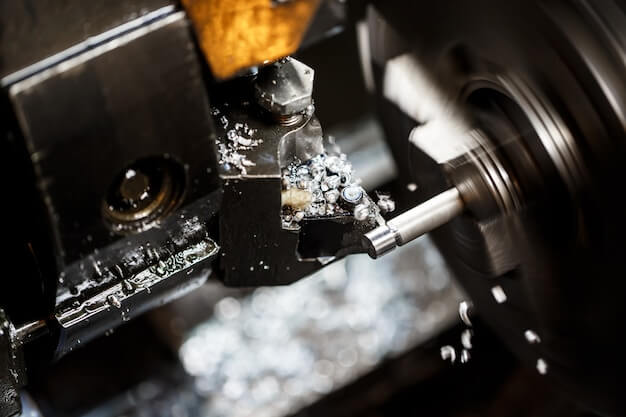Introduction to Acetal Polymers
Acetal polymers, often known under trade names such as Delrin, are highly crystalline thermoplastics characterized by their excellent mechanical strength, rigidity, and chemical resistance. These polymers are comprised of repeating units formed through the polymerization of formaldehyde or other cyclic ethers, resulting in a backbone with unique, stable acetal linkages (-C-O-C-). Their inherent stability is grounded in their resistance to hydrolysis, leading to a material that performs well even in moist environments. Furthermore, acetals possess low coefficients of friction and good dimensional stability, securing their position as materials of choice for precision parts requiring tight tolerances.
The Role of Acetals in Material Science
Acetal polymers hold a distinguished position within the realm of material science due to their outstanding mechanical properties, including high strength and rigidity combined with excellent fatigue resistance and low friction. This class of thermoplastics is notable compared with other polymers for its resilience in tough working conditions—a feature attributed to its strong carbon-oxygen bonds—and it easily operates at temperatures up to 120 degrees Celsius. Unlike certain other plastics that may creep under long-term loading, acetal polymers maintain dimensional stability, making them reliable components in precision parts like gears and bearings. Furthermore, they exhibit superior resistance to solvents and chemicals, expanding their applicability across automotive, consumer electronics, and industrial machinery sectors. By offering this unique combination of toughness, durability, and chemical inertness, acetal polymers are versatile allies in advancing the capabilities of modern materials.
Properties of Acetal Polymers
Acetal polymers are renowned for their high mechanical strength and rigidity, which make them an indispensable material in load-bearing applications. The inherent natural lubricity of acetal facilitates its impressive wear resistance, reducing the need for additional lubricants in machinery with moving parts. Furthermore, these polymers exhibit excellent chemical resistance and stability, allowing them to perform consistently in environments exposed to various chemicals and pH conditions without degrading. For instance, acetal is commonly used in automotive fuel systems due to its resilience to gasoline and diesel fuels.
Applications of Acetal Polymers in Various Industries
In the automotive industry, acetal polymers are revered for their high strength and low friction which contribute to the manufacturing of durable fuel system components, such as fuel sender units. Within consumer electronics, these polymers provide mechanical properties essential for small, moving parts in gadgets; an example is the intricate gears inside a camera’s zoom mechanism. The medical sector benefits greatly from the biocompatibility of certain acetal copolymers, which has led to their use in applications like insulin pens for diabetic care. Each of these examples showcases the adaptability of acetal polymers across diverse industries due to their beneficial characteristics.
Advances in Acetal Polymer Technology
The continuous evolution of acetal polymer technology has led to the development of copolymers which exhibit superior mechanical and thermal properties compared to their homopolymer counterparts. Advances have been realized through molecular-level engineering that allows for improved resistance to fatigue, enhanced dimensional stability, and broader chemical compatibility. Innovations in processing techniques also facilitate more intricate part geometries, reducing the weight and material usage without compromising performance. These refined fabrication methodologies include advanced injection molding protocols and additive manufacturing, expanding the application spectrum of acetal polymers across various industries.
Environmental Considerations and Recyclability of Acetal Polymers
Acetal polymers, known for their durability and resistance to various environmental factors, also bear an environmental footprint that necessitates thoughtful consideration. Although inherently more resistant to degradation than some other plastics, disposal through incineration can produce formaldehyde, a volatile organic compound with potential health risks. Recognizing this, the industry has made strides in recycling acetal products where feasible. Recycling practices involve mechanical shredding into pellets, which can be remolded, thus contributing to sustainability efforts. However, because acetal polymer blends may contain different additives, separation prior to processing is crucial to maintain material integrity. Efforts are ongoing to improve the recyclability of acetal polymers to mitigate their environmental impact, thus further enhancing their profile as a versatile component in modern material science.
Unique Characteristics and Limitations of Acetal Polymers
Acetal polymers stand out in the realm of plastics due to their exceptional strength, stiffness, and dimensional stability. These materials exhibit low friction and excellent wear resistance, making them ideal for gears and moving parts. While they can sustain significant loads and resist deformation under stress, acetal polymers also maintain these properties at elevated temperatures, though they are typically rated for continuous use only up to about 90°C-120°C (194°F-248°F), varying by specific formulation. However, acetal may experience degradation when exposed to strong acids or bases and might not be suitable for long-term ultraviolet light exposure without added stabilizers. It’s important to note that while acetal excels in mechanical applications, its possible uses must always be evaluated considering the environmental conditions it will face.
Related Posts
- Advancements in Material Science: Impact on CNC Machining Techniques and Outcomes
Introduction to Material Science and CNC Machining Material science plays a pivotal role in manufacturing by studying the properties and applications of various materials, such as metals, polymers, ceramics, and…
- Material Versatility in CNC Machining: From Metals to Polymers and Beyond
Introduction to CNC Machining CNC machining stands as a cornerstone in the manufacturing sector, enabling the precise creation of parts and components. This process utilizes computer numerical control (CNC) to…
- Solving CNC Machining Challenges with Material Science: Innovations in Metal Alloys and Plastics
Introduction to CNC Machining and Its Challenges CNC (Computer Numerical Control) machining is a critical process in manufacturing, enabling precise, efficient production of complex parts. It plays an integral role…








